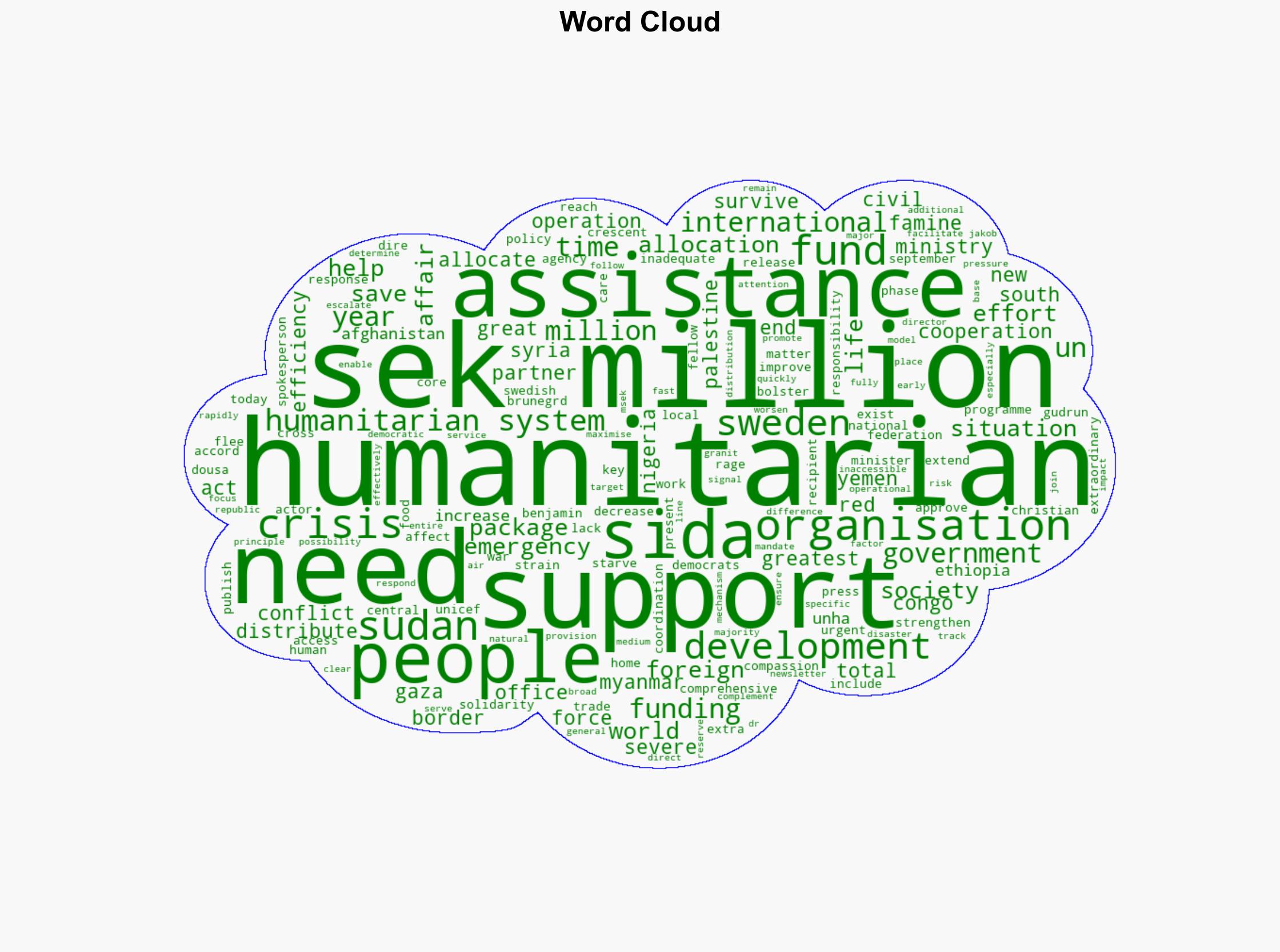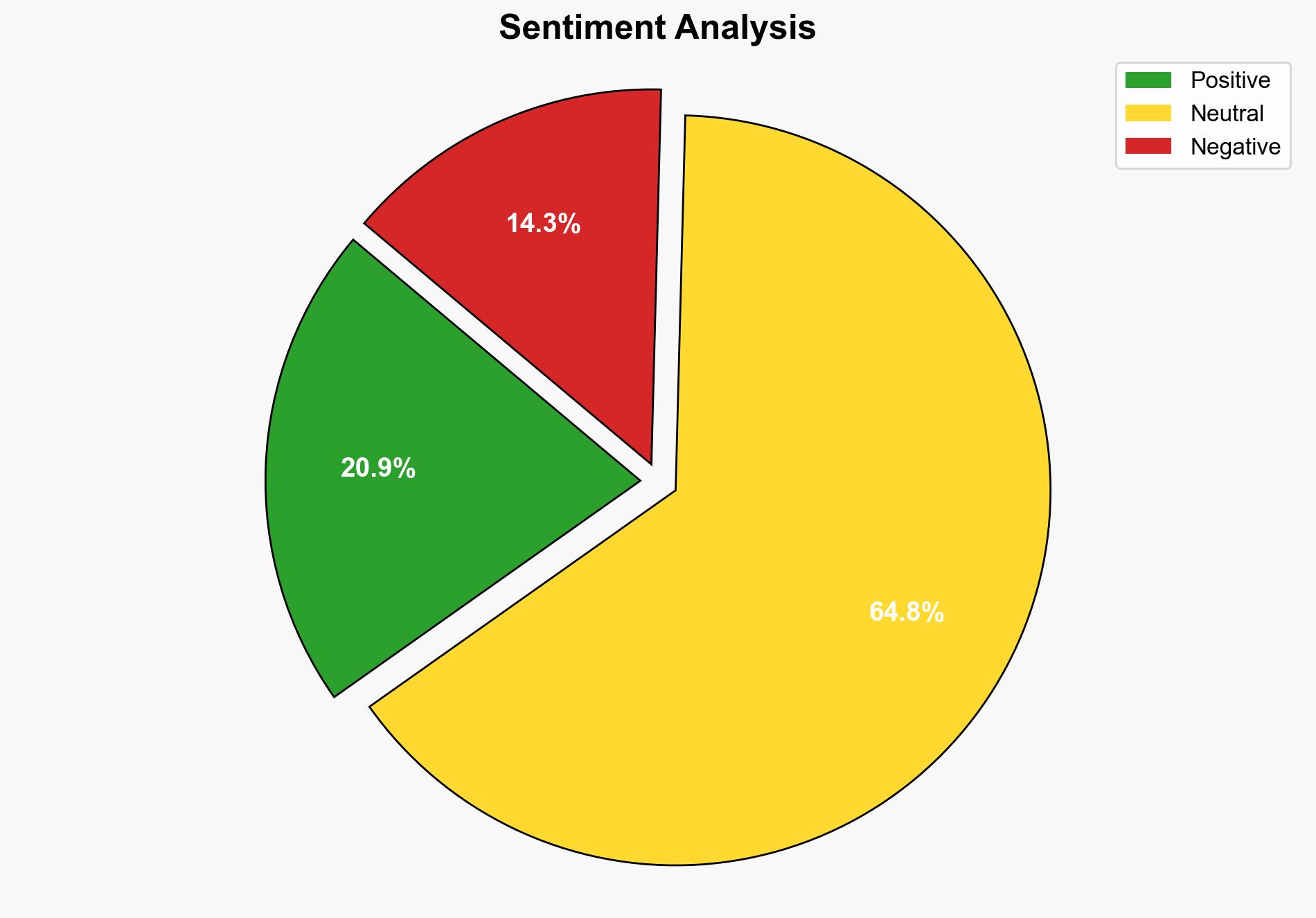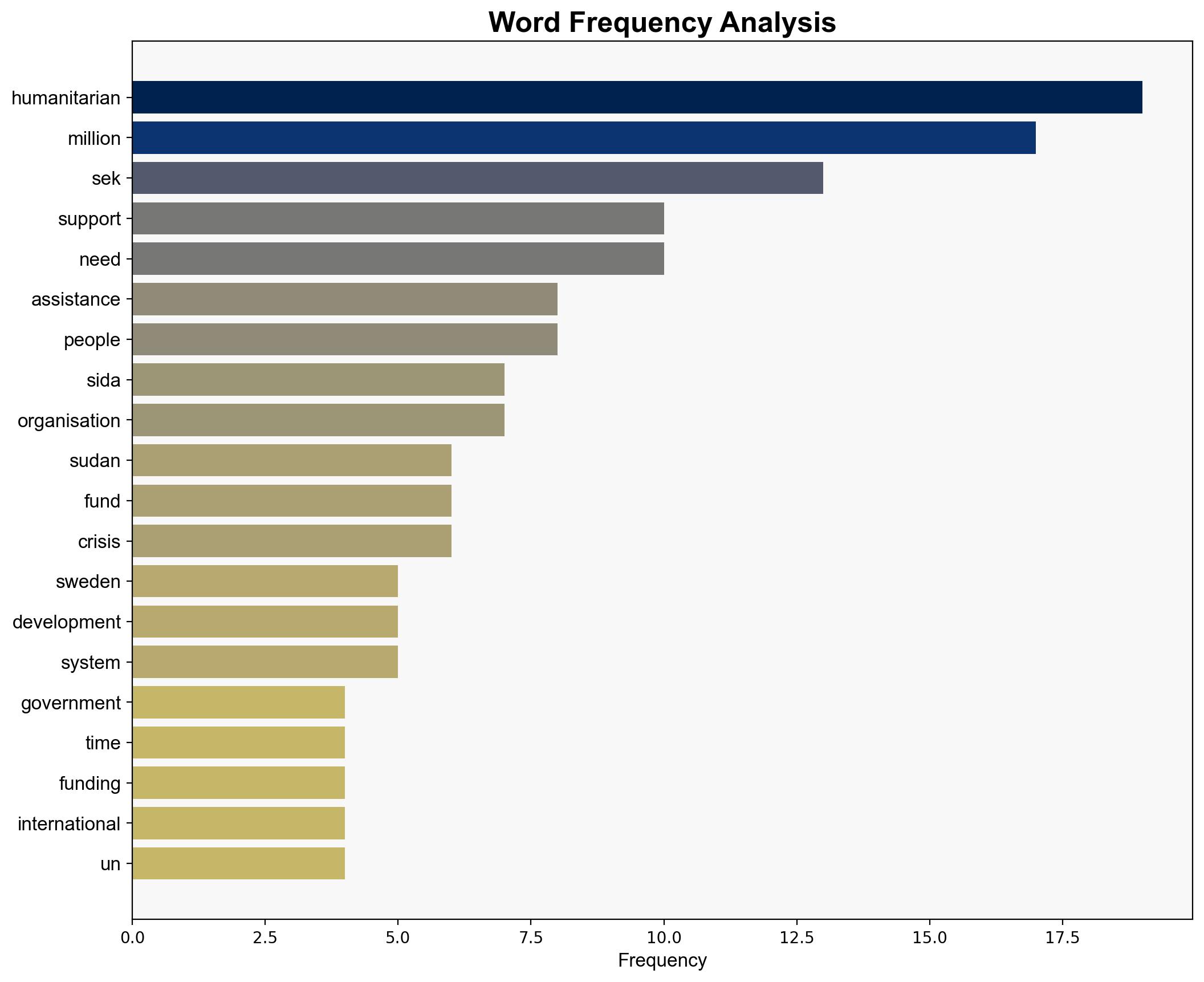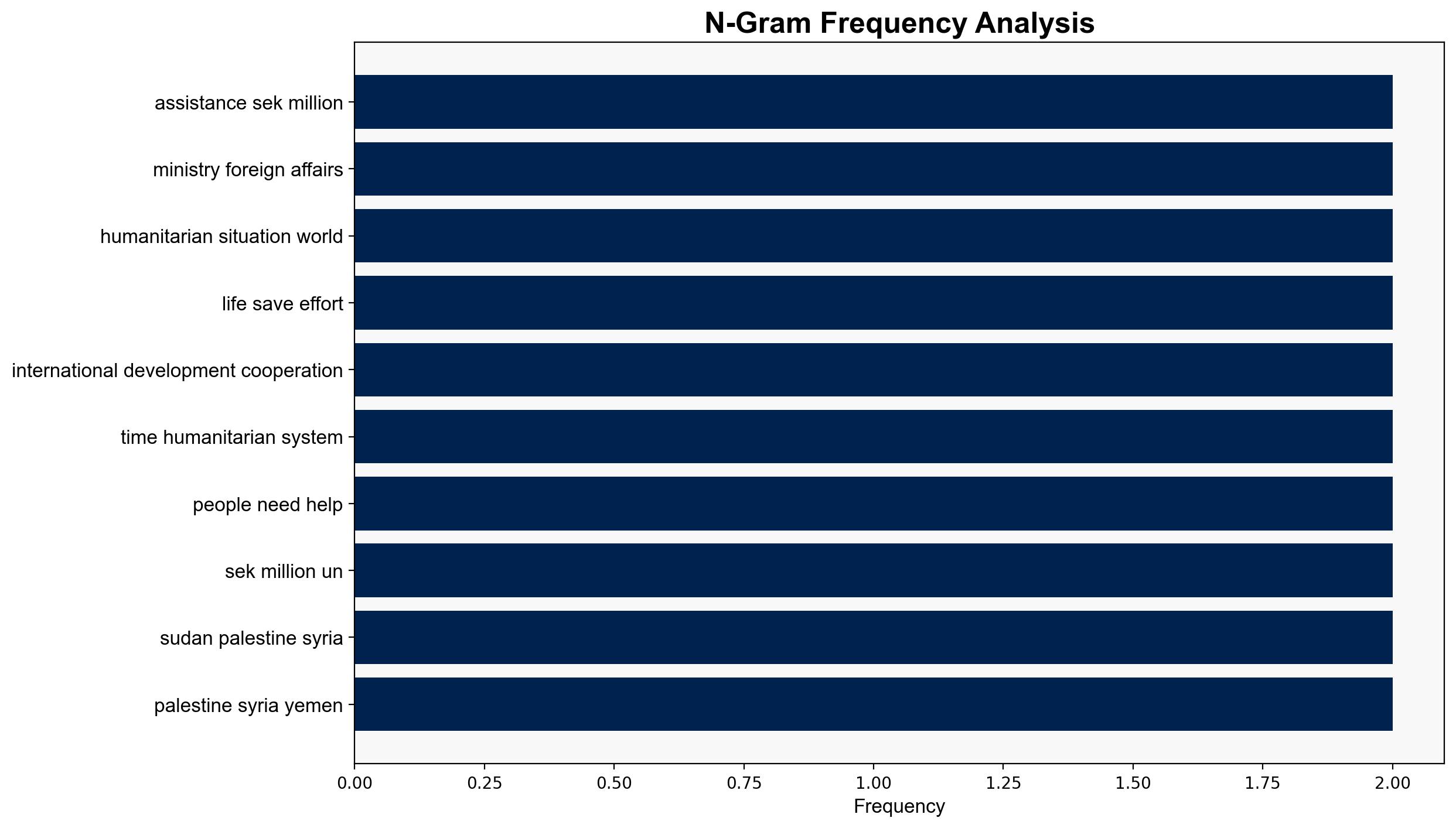Sweden bolsters humanitarian assistance with SEK 775 million – Globalsecurity.org
Published on: 2025-09-30
Intelligence Report: Sweden bolsters humanitarian assistance with SEK 775 million – Globalsecurity.org
1. BLUF (Bottom Line Up Front)
Sweden’s decision to allocate SEK 775 million for humanitarian assistance is primarily driven by a strategic commitment to international solidarity and crisis response. The most supported hypothesis is that this funding aims to reinforce Sweden’s role as a key humanitarian actor, enhancing its global influence and diplomatic relations. Confidence Level: Moderate. Recommended action includes monitoring the effectiveness of fund allocation and assessing the geopolitical impact of Sweden’s increased humanitarian engagement.
2. Competing Hypotheses
1. **Hypothesis A**: Sweden’s increased humanitarian funding is a strategic move to bolster its international reputation and influence, positioning itself as a leader in global humanitarian efforts.
2. **Hypothesis B**: The funding is primarily a response to immediate humanitarian crises, driven by genuine concern for affected populations, with less emphasis on strategic positioning.
Using ACH 2.0, Hypothesis A is better supported due to the structured allocation to prominent international organizations and the emphasis on Sweden’s role in the global humanitarian system.
3. Key Assumptions and Red Flags
– **Assumptions**: It is assumed that the funding will be effectively utilized by recipient organizations and that Sweden’s motivations are purely humanitarian.
– **Red Flags**: Potential for misallocation of funds or inefficiencies within recipient organizations. Lack of detailed metrics for measuring impact raises concerns about accountability.
– **Blind Spots**: The long-term impact of this funding on Sweden’s domestic policies and budget allocations is not addressed.
4. Implications and Strategic Risks
– **Geopolitical**: Sweden’s increased humanitarian role may enhance its diplomatic leverage but could also draw criticism from nations with differing priorities.
– **Economic**: The financial commitment may strain Sweden’s budget if not balanced with domestic needs.
– **Psychological**: Strengthening Sweden’s image as a humanitarian leader could influence public perception and national identity.
5. Recommendations and Outlook
- Monitor the allocation and impact of funds through regular audits and reports from recipient organizations.
- Engage in diplomatic dialogues to maximize the geopolitical benefits of this humanitarian initiative.
- Scenario Projections:
- Best: Sweden’s actions lead to significant improvements in crisis regions, enhancing its global standing.
- Worst: Mismanagement of funds leads to criticism and reduced influence.
- Most Likely: Sweden maintains its humanitarian commitments, achieving moderate success in crisis alleviation.
6. Key Individuals and Entities
– Benjamin Dousa
– Gudrun Brunegrd
– Jakob Granit
– Swedish International Development Cooperation Agency (SIDA)
– United Nations World Food Programme
– UNICEF
– UN Central Emergency Response Fund
– International Federation of Red Cross and Red Crescent Societies
7. Thematic Tags
humanitarian assistance, international relations, crisis management, geopolitical strategy





